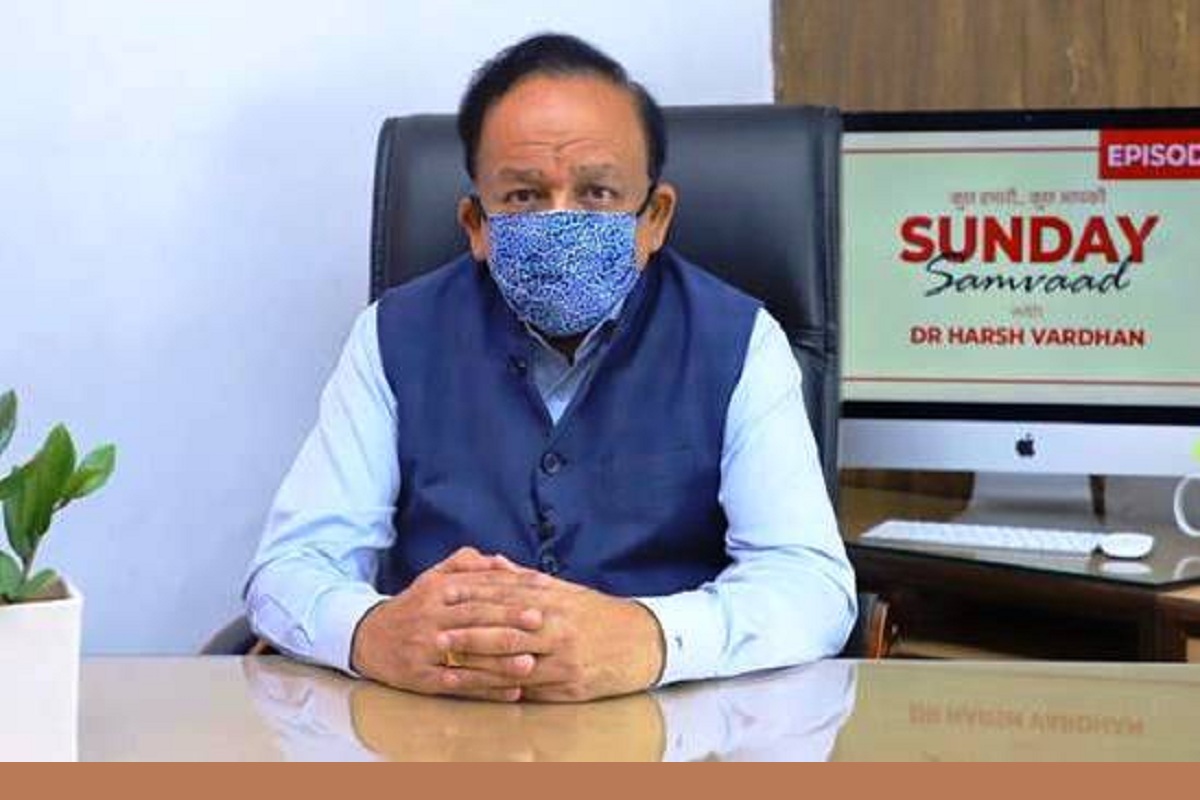5,236 suspected Mpox cases reported in DR Congo, 229 deaths: WHO
The ongoing monkeypox situation in the DRC remains a significant public health concern that necessitates continual monitoring and response, said the report.
The worm infection has detrimental effects on children’s physical growth and well-being, and could cause anaemia and under-nutrition.

(File Photo: PIB)
Since the launch of the ‘National Deworming Day’ in 2015, 14 states have shown a reduction in worm infections prevalent among children while nine states showed a substantial decline, the Health Ministry said on Tuesday.
The National Deworming Day (NDD), advised by the World Health Organization, is meant to eliminate worm infestation among children and adolescents living in areas with a high soil-transmitted helminthiases (STH) burden.
In the last round of deworming earlier this year which was halted by the Covid-19 pandemic, nearly 11 crore children and adolescents were administered Albendazole tablet across 25 states/Union Territories.
Advertisement
The STH, also known as parasitic intestinal worm infection, is a significant public health concern mostly in low-resource settings.
The worm infection has detrimental effects on children’s physical growth and well-being, and could cause anaemia and under-nutrition.
To evaluate the impact, a High Level Scientific Committee was appointed by the Health Ministry. “All 14 states have shown reduction in the follow-up survey compared to the baseline prevalence survey and states like Chhattisgarh, Himachal Pradesh, Meghalaya, Sikkim, Telangana, Tripura, Rajasthan, Madhya Pradesh and Bihar have shown substantial reduction in worm prevalence in the STH follow-up prevalence survey,” the Ministry said in a statement
As per the WHO report on STH published in 2012, there were an estimated 64 per cent children between 1 to 14 years in age at risk of STH in India. The risk was estimated based on hygiene and sanitation practices, and STH prevalence data at that point of time.
To assess the exact burden of STH in India, the Ministry appointed the National Centre for Disease Control (NCDC) as the nodal agency to coordinate and conduct nationwide baseline STH mapping.
In collaboration with partners and government agencies, the NCDC completed the baseline STH mapping across the country by the end of 2016. The data showed varied prevalence ranging from 12.5 per cent in Madhya Pradesh to 85 per cent in Tamil Nadu.
The Health Ministry said Chhattisgarh has successfully conducted 10 rounds of NDD till date, and the drop in prevalence has been significant from 74.6 per cent in 2016 to 13.9 per cent in 2018.
Sikkim with nine rounds, has seen a reduction from 80.4 per cent in 2015 to 50.9 per cent in 2019. Andhra Pradesh has, however, seen limited reduction from 36 per cent in 2016 to 34.3 per cent in 2019 with nine rounds. Rajasthan, which has implemented an annual round only due to low baseline of 21.1 per cent in 2013 has seen a reduction of less than 1 per cent in 2019 as per the survey.
The Health Ministry said the frontline health workers are trained to follow Covid-19 safety guidelines while administering Albendazole tablets to children and adolescents between one and 19 years during home visits or through the staggered Village Health Sanitation and Nutrition Day-based model between August and October 2020.
Advertisement